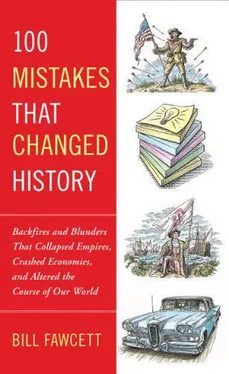Both invasions came while also at war with Britain. France had been at war with Britain for more than a decade when the Grande Armée entered Russia. Germany had failed to break the RAF in the summer of 1940 and invaded a year later.
Both were fighting a war on two fronts. France against the resistance and Wellington in Spain, and Hitler had sent the Afrika Korps to bail out Italy six months before invading Russia.
Both times, invaders or their allies had control of virtually all of Europe except Russia and Britain.
Both invasions were the largest attack force ever seen up to that time. The Grande Armée consisted of more than 600,000 soldiers, hundreds of thousands of horses, and hundreds of cannons with contingents from all over Europe. The Nazi invasion, Operation Barbarossa, began with 3 million soldiers, 3,580 tanks, 7,184 artillery guns, 1,830 planes, and 750,000 horses.
Both invasions began in June: June 12 by Napoleon and June 22 for Barbarossa.
Both invasions sought a knock-out battle that would force a surrender on Russia. Neither managed to find one.
Both Hitler and Napoleon thought the invasion would be over fast, and the Russians would collapse even faster. Napoleon was quoted as saying he would defeat Russia in twenty days and be back in Warsaw within a month. Hitler and his generals expected such a quick victory that they did not even bother to stockpile winter clothing for the troops.
Both found themselves still fighting as that first winter began.
Both invaders saw Moscow as the key to victory. Bonaparte captured the city, but that did not force a Russian surrender. The German army got units to within fourteen miles of Moscow’s city center, but they were still unable to take the Russian capital.
Napoleon was unwilling to give up Moscow and waited too long into the winter before trying to march back out of Russia. His men froze and were slaughtered along the march back to Poland. Hitler was unwilling to give up any conquered ground in Russia, issuing a no-retreat order to all of his units. This meant thousands of men were killed or captured who would be desperately needed in later years. Hitler was unwilling to allow a withdrawal from Stalingrad, and so a half million veteran soldiers ended up dead or captured.
Both badly overestimated the condition and usefulness of the Russian roads and the ability of the countryside to supply food for their troops.
Both armies were defeated as much by the winter as they were by the Russians. Napoleon’s men died from a lack of supplies and the intense cold as they marched out; the German army lost men and were unable to fight effectively because of the rough Russian winter.
Partisan actions forced both invaders to assign a large part of their army to protecting the rear areas and supply lines.
During both invasions, the first winter was one of the coldest and fiercest of that century.
Both France under Napoleon and Germany under Hitler lost so many men in Russia that their empires were destroyed. Napoleon led 422,000 men into Russia in 1812; less than 10,000 returned. Of the almost 3 million men who invaded Russia in 1941, less than half remained by the spring of 1943.
Both nations never recovered from the losses taken in their Russian invasions.
Among the armies that invaded France in 1813 there was a very large Russian army. Among the armies that invaded Germany in 1944 the largest army was Russian.
For both leaders, the invasion of Russia ended an unbroken run of victories that had put them in control of most of Europe.
Hitler and Napoleon made many of the same mistakes invading Russia. Neither was prepared for a long war, both armies were broken by the harsh Russian winter, and both men failed to move quickly enough to save a vital army trapped there. But the biggest mistake has to be Hitler’s alone, since he took almost exactly the same missteps as Napoleon had 130 years earlier while invading Russia. They say hindsight is 20/20, and Hitler was offered that hindsight had he picked up any world history book. He apparently hadn’t studied his Russian history enough to pass that test.
A Leipzig of Faith
1813
If one man’s ego had not gotten in the way of his good sense, there would be someone named Napoleon VIII or IX who at least held the title emperor of France. The mistake that prevented this from happening was made by Napoleon Bonaparte himself. And he made this mistake not during but after the Battle of Nations fought in October 1813 in and around the city of Leipzig.
By October 16, more than 175,000 soldiers from Austria, Prussia, Russia, and Sweden had converged on the main French army consisting of about 160,000 soldiers. Napoleon had faced worse odds and won decisively, but something was different. This was after the massive losses incurred in the invasion of Russia, so the quality and training level of the French army was far below that of the Grande Armée before 1812. And if the French emperor’s weapon was inferior, his foes had gotten smarter. The allies had finally learned from the many times Napoleon had defeated them over the past two decades.
Bonaparte had been doing well. In May, he defeated the main Prussian Army near Lützen, but a lack of cavalry meant he was unable to do more than drive them away. On May 20, 1813, he fought the Russians and gave them a beating as well. In fact, the French emperor was so successful that the allies all agreed to a truce that was mostly to the advantage of the French. This provided more time to train his new army and recruit new regiments. While the French trained, the allies concentrated their forces.
The truce was finally over on August 16, 1813, when Germany’s fanatically anti-Napoleon diplomat Metternich demanded terms he knew would be unacceptable to any Frenchman. The general opposing Bonaparte had found a winning strategy. If they could not beat Napoleon in a battle, they wouldn’t even try to. Instead, they would attack where he was not. Supply needs forced all armies of the period to separate a few days’ march apart. There were not enough rations or wagons to bring in food to an army of 100,000 men staying for any time in one location. So the Austrians, Prussians, and even the Swedes went after the French army’s dispersed corps.
First, the former French marshal who had become the Swedish king and changed sides, Bernadotte, defeated Oudinot that August 23. Then General von Blucher and his Prussians beat the Napoleonic marshal MacDonald’s corps three days later. After that, Napoleon had no choice but to react to every move by any of the allied armies. For a while he held them all at bay, at the expense of exhausting his constantly marching soldiers. Marching as much as forty miles in a day, the French main army and Napoleon managed to reach Dresden, the capital of his Saxon ally, in time to drive off an Austrian attack. By October 15, Napoleon was preparing for yet another march, this time to meet von Blucher and his Prussian army, who were approaching Bonaparte’s base in Leipzig from the north. But just as that move started, word came that an even larger Austrian army was marching toward the French army’s position from the south. With far inferior numbers, Napoleon prepared to use a strategy he had successfully employed many times. He would defeat his enemies one at a time. This strategy at Leipzig, often called the Battle of Nations because just about every nation in Europe was involved, meant Napoleon had to first attack the Prussians in the north with the bulk of his army before the other forces approaching him could threaten the weak units facing them. If Napoleon could break through the Prussian line, scatter the army, and then turn south, he had a chance to roll up the allies’ armies one after another from north to south. But the Prussians would not cooperate. Even though outnumbered and taking significant casualties, they refused to retreat.
Читать дальше












